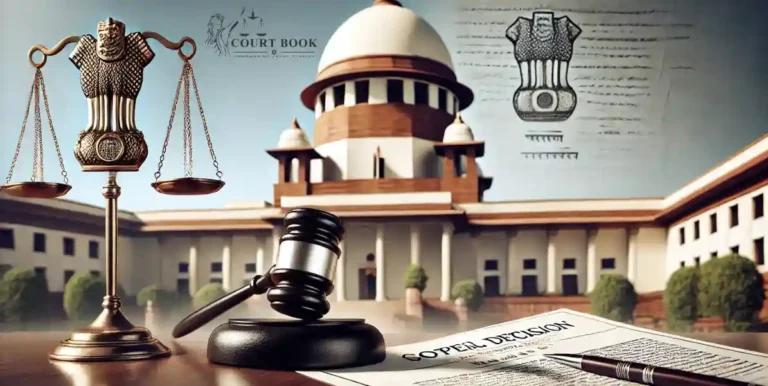The Supreme Court of India clarified that an agreement to lease does not create leasehold rights unless the lease deed is formally executed and registered. The ruling came in the case of Delhi Development Authority (DDA) vs. S.G.G. Towers (P) Ltd. & Ors., where the apex court examined the legal standing of an unexecuted lease agreement.
Background of the Case
The dispute stemmed from an agreement to lease executed by the Delhi Development Authority (DDA), formerly the Delhi Improvement Trust, in 1957. The agreement pertained to a plot measuring 2044.4 sq. yards in the Industrial Area Scheme on Najafgarh Road, New Delhi. The lease agreement was signed in favor of M/s Mehta Constructions and Industrial Corporation Pvt. Ltd., but the lease deed was never formally executed.
In 1972, M/s Mehta Constructions entered into an agreement to sell the plot to M/s Pure Drinks Pvt. Ltd., and in 1985, a sale deed was executed in favor of M/s Pure Drinks under a court order. However, M/s Pure Drinks went into liquidation, leading to an auction sale in 2000, in which S.G.G. Towers (P) Ltd. purchased the plot.
Read Also:- Supreme Court Rules Wife Need Not Pay Stamp Duty on Flat Received in Divorce Settlement
DDA challenged the auction sale, arguing that Mehta Constructions never acquired leasehold rights, and therefore, subsequent transfers, including the auction sale, were invalid.
The Supreme Court bench, comprising Justice Abhay S. Oka and Justice Ujjal Bhuyan, ruled in favor of the DDA, reaffirming that mere execution of an agreement to lease does not grant ownership or leasehold rights unless the lease deed is executed and registered.
Clause 24 of the lease agreement was pivotal in the judgment, stating:
“Nothing in these presents contained shall be considered as a demise at law of the said piece of land hereby agreed to be demised or any part thereof so as to give the said intended lessee any right, title, or interest therein other than as may be conferred by these presents until the said lease shall have been executed and registered.”
The Court held that since the lease was never executed, Mehta Constructions never had any legal rights over the plot. Consequently, all subsequent transactions, including the sale to Pure Drinks and the auction purchase by S.G.G. Towers, were ineffective in granting ownership or leasehold rights.
Read Also:- Supreme Court Justice BR Gavai Warns Against Over-Reliance on AI in Judiciary
Key Takeaways from the Judgment
No Leasehold Rights Without Execution: The Court emphasized that an agreement to lease does not itself create leasehold rights. Only upon execution and registration of a lease deed can such rights be legally recognized.
Auction Sale Was on an ‘As-Is Basis’: The Supreme Court observed that the auction sale to S.G.G. Towers was conducted on an as-is basis. Since Mehta Constructions never had leasehold rights, the auction purchaser could not acquire rights beyond what the original lessee possessed.
DDA's Right to Recover Possession and Unearned Income: The Court ruled that DDA retains the right to recover possession and unearned income from S.G.G. Towers, reinforcing that ownership and lease rights must be legally established through proper execution of a lease.
Possible Regularization of Transaction: If S.G.G. Towers wishes to regularize the transaction, it can approach the DDA for approval. However, this would be subject to payment of unearned income as per the applicable regulations.
Dismissing the appeal of S.G.G. Towers, the Supreme Court concluded:
“The first respondent (SGG Towers) is not entitled to either ownership or leasehold rights in respect of the said plot. The first respondent cannot claim to be a lessee as the lease in terms of the lease agreement was never executed.”
The Court also provided DDA with the liberty to take necessary action for recovery of possession and financial dues.
Case Title: Delhi Development Authority Versus S.G.G. Towers (P) Ltd. & Ors.















